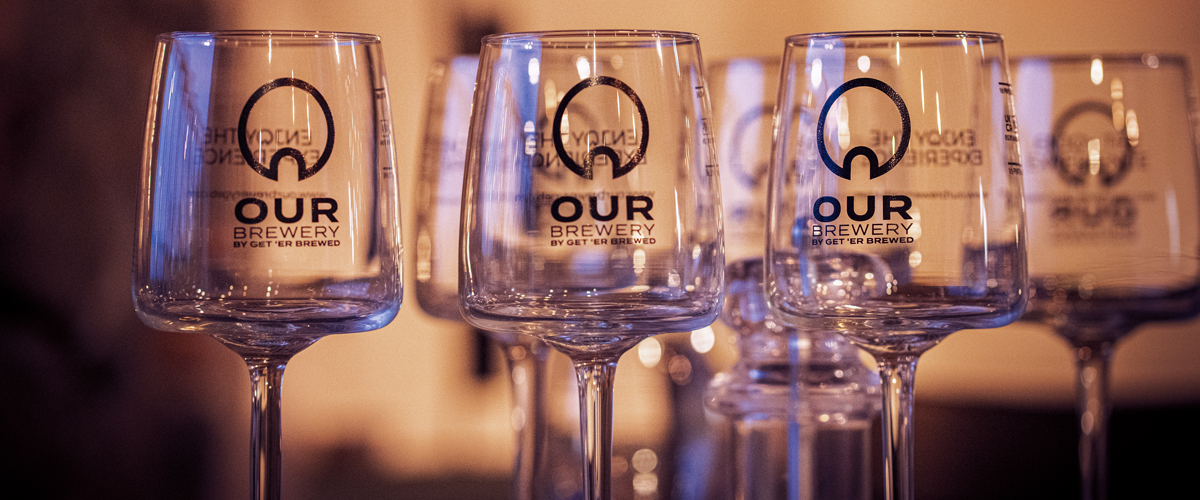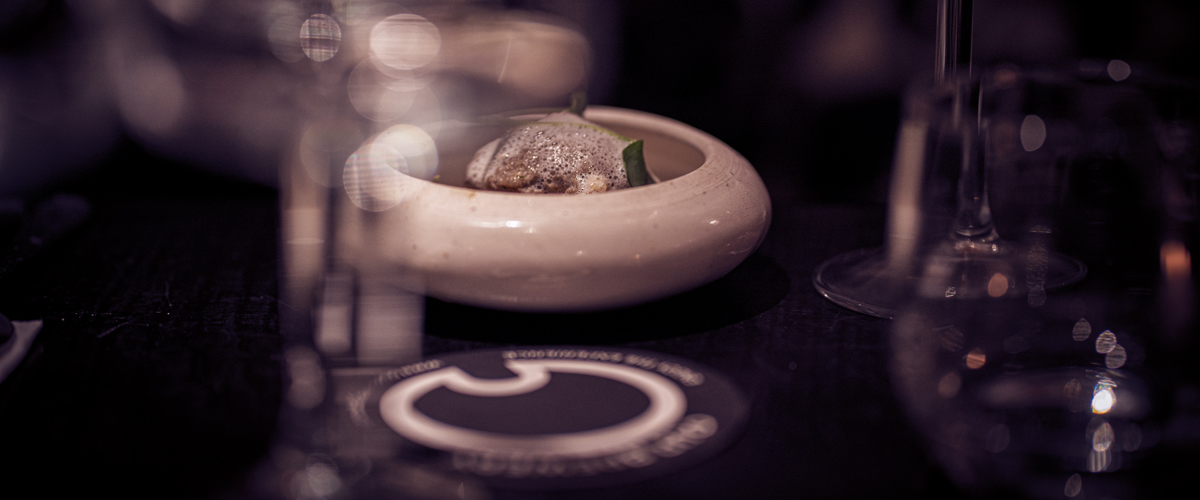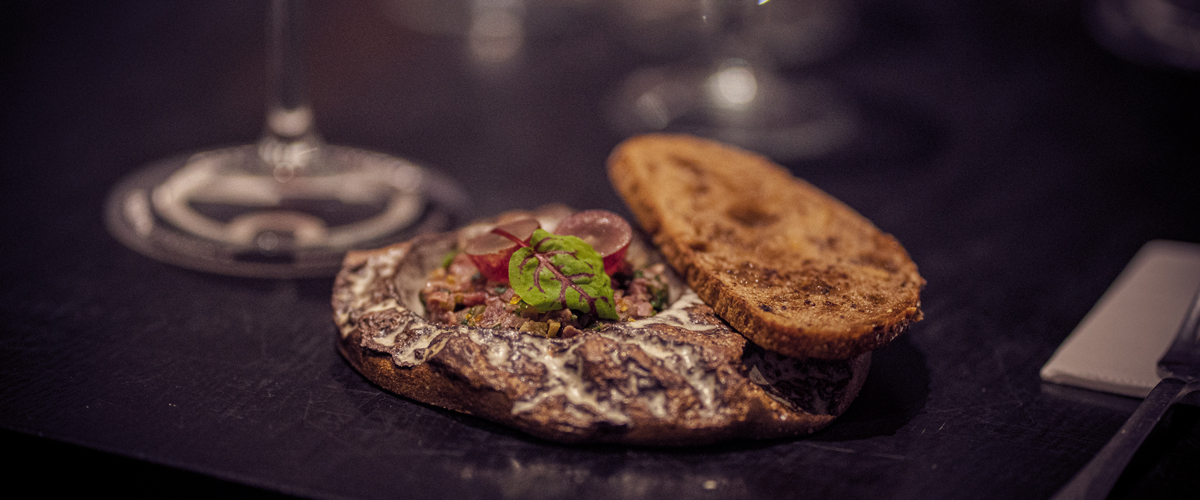Wild Beers and Northern Lights — Launching Our Brewery’s Barrel Aged Beers

Wild Beers and Northern Lights — Launching Our Brewery’s Barrel Aged Beers
It takes a lot to impress me, but arranging for the Aurora Borealis to shine down from the heavens after a delicious and indulgent six course meal is a sure-fire way of ensuring my jaw hits the floor.
While this might sound like an exaggeration, this is exactly what happened on the night Our Brewery launched six stunning barrel aged beers at Sleepy Hollow, a restaurant in Newtownabbey, right at the edge of Belfast. On draining my last drops of Terra Nocturne – an incredible Bourbon barrel imperial stout I’ll tell you all about in due course – I rushed outside, phone in hand, marvelling at the vibrant greens and reds as they shimmed above the pale city lights along the horizon.
While awe-inspiring, the Northern Lights were just the icing on the cake of what was a very special night. The true highlight of the evening was the unveiling of six beers from Our Brewery, each of which had spent between 17 and 27 months slowly coming to maturation in barrels before being perfectly paired with an incredible dish. The latter being the careful work of Sleepy Hollow’s chef/patron Paul Dalrymple.
But before I tell you about this meal in detail, I want to go back to when I first heard about this project, why it came into being, and why it matters. In a post-craft, post-pandemic world it feels easier than ever to be cynical about where beer in the UK is at right now. But amidst the cracks are beams of light, shining on some of the most exciting brewing happening anywhere in the world. This might sound like something of an exaggeration, but I mean it. This is for real.
In July 2022 I flew over to Belfast to meet Johnny, Deborah and the team from Get ‘Er Brewed for the very first time. We’d been working together for a few months, but this was to be the start of something more meaningful as Our Brewery was to launch its first beers later that night at The Deer’s Head in central Belfast. Before we headed into town, Johnny took me across the yard and into the small warehouse that houses Our Brewery, its Brewiks brewing system, and a range of fermentation vessels of various sizes.
While Johnny seemed keen to talk about the range of clean beers he was
launching that night, the tone of his voice shifted when he took me to
the corner of the brewery and showed me several oak barrels – including
three foeders of French origin, constructed of limousin oak. Within
these ex-wine and spirit barrels were a range of wild, complex and sour
beers that were steadily, slowly maturing. I tasted a not-quite-ready
Flanders-style red ale and my eyes widened as I did so. Something
special was happening here, and it was Johnny’s enthusiasm and desire to
produce the best beers he and his team are capable of that was driving
it.
Fast Forward to October 2024 and I’m sitting with dining
companions around a table inside Sleepy Hollow restaurant with a house
beer to whet my appetite before the first course arrives. After a short
speech from Johnny, the first course arrives, a terrine of wild
mushroom, nuts and truffle, paired with Razma, a keptinis-style ale
inspired by Lithuanian farmhouse brewing tradition.
When I say
inspired by, I mean it. This wort for this eventual beer was produced
via an 18 hour brew day, using a traditional log fire to heat the mash
and boil the beer. After this it spent a further 18 months in ex-rum
barrels, adding depth, tannin and complexity to an already highly vinous
beer. Dashes of cranberry and allspice came through, pairing perfectly
with the richness of the mushroom. One beer in and already everyone in
the room was wearing a massive grin.
Next we enjoyed a tartar of
wild venison, with the rich, gamey meat pairing almost effortlessly with
Our Brewery’s Flanders-style oud bruin – the aptly named Low Land. The
style is perhaps best associated with breweries like Rodenbach and
Duchesse de Bourgogne. Low Land has spent a good 17 months in barrels
formerly used in the making of Bordeaux, giving it a similar wine-like
depth as showcased earlier by Razma. What impressed me most about Low
Land, however, was its restraint – the acid profile was gentle, the
sourness kept to a minimum, a subtle redcurrant tartness providing
perfect balance to the richness of the dish.
Although I enjoyed
the entire meal immensely, for me the third course was the knockout
blow. I love seafood, and I love Bretted lagers (keep an eye out for
more in the future, they’re gonna be a thing, trust me.) With its fine,
foamy mousse, a lively effervescence and just enough funk to take it
away from a typical lager flavour profile it behaved not unlike a
delicate, sparkling white wine when paired with lobster and crab. A
subtle herbal note in the finish cleaned up the palate, not unlike the
way that samphire was used in the dish itself. This beer, dish and
resulting pairing left me near speechless (if you can believe it.) A
perfect match.
Thinking we’d peaked, I was then immediately
proved wrong. Along came an almighty hunk of smoked pork, paired with
more pork, this time pulled and locked away in a brioche bun. Rich food
like this needs cut and contrast to help you work through all that fat
and smoke, something with depth and acidity, something like a totally
wild fermented beer that’s been aged in oak for 27 months. Enter,
Untamed. Perhaps the shining jewel in the Our Brewery barrel-aged range.
This beer is a masterclass in patience, one that waited and waited for
that perfect moment to take it from foeder to bottle. With delicate
notes of fresh green apple and dry white wine it’s by no means
overbearing (I’d happily polish off a bottle of this with or without
food,) but it made magic when paired with the pork. The entire room was
spellbound by this point.
I know exactly what you’re thinking
right now: what you need after all this richness and indulgence is two
puddings. There were two beers left to try, after all, so why not? First
we enjoyed a mille feuille with caramelised white peach, apricot and
grapefruit. There was no relenting from the chef in terms of the
richness and complexity of flavour here, which speaks volumes for the
beers themselves – to pair with food this good, you need seriously good
beer, after all. Here Séasúr, a mixed fermentation saison aged in white
Bordeaux barrels added freshness and contrast, with complementary notes
of citrus and stone fruit giving everyone a little lift before the grand
finale.
Terra Nocturne was to be that finale. An 11.4% beast of
an imperial stout aged in Bourbon casks for 20 months, showcasing notes
of molasses, vanilla, coconut, with a leathery scent. But it was not as
intimidating as I initially thought, with a light acidity giving these
flavours zip and buoyancy. This was, for me at least, sorely needed,
lending me the necessary strength I needed as I struggled (oh the
hardship!) to make room for a dessert of milk chocolate and caramelised
white chocolate, packed with brandy soaked golden raisins.
It
was, as you can imagine, spectacular. Sleepy Hollow’s Paul Dalrymple and
his team did an incredible job in crafting dishes that highlighted the
nuances and complexities of each beer so well. What impressed me most,
however, was how each beer held its own against such a powerful blend of
flavours. This speaks of their quality, yes, but it's difficult to
convey on the page just how impressive these beers really are. For a
brewery that is turning its hand to wild fermentation and barrel ageing
for the first time, each beer showcases as much skill as it does
diligence in terms of getting each recipe correct, selecting the best
ingredients, and then giving each beer as much time as it needs to be
ready.
More than this, I feel something special is happening in
UK barrel aged beer at the moment, and these beers are further evidence
of this. Our Brewery is one among several producers such as Balance in
Manchester, Fyne Ales in Scotland, and Burning Sky in the south of
England who are collectively defining what I consider is genre defining
in British and Irish wild beer. Pay attention, because now is the time
to start getting really excited about what’s still to come.
— Matthew Curtis
